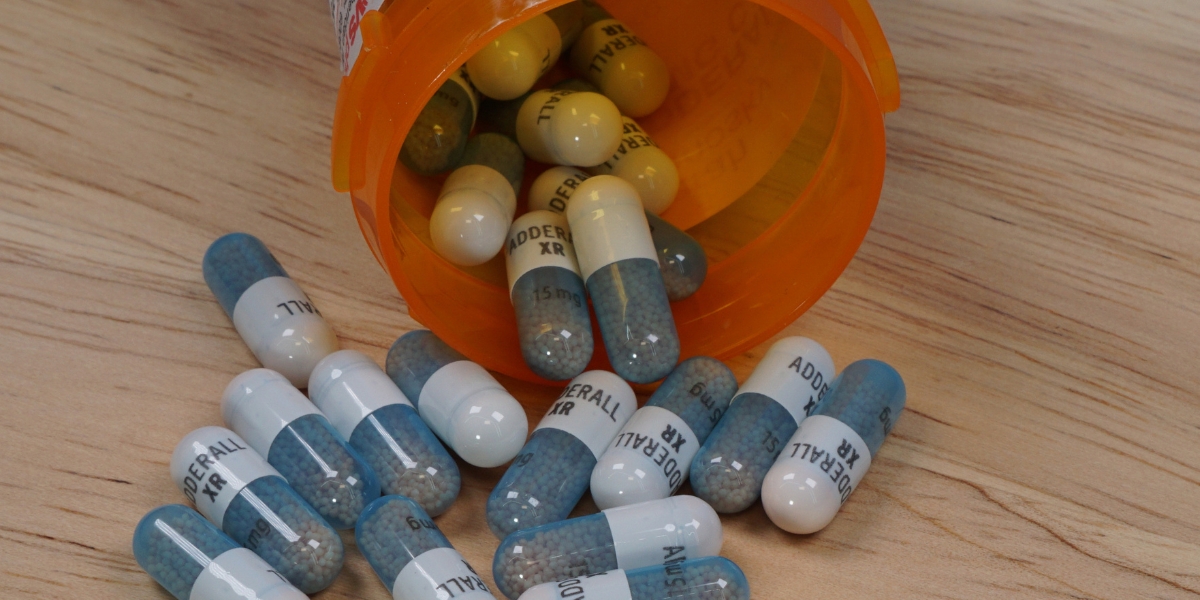Adderall Overdose: Signs, Symptoms, and Effects

Adderall abuse is widespread, and Adderall overdoses are becoming increasingly common, especially among college students who believe it gives them an academic advantage because people are unaware of the dangers of using the medication.
Adderall can be an effective medication for managing attention deficit disorders with medical supervision and taking it as prescribed; approximately 4% of adults in the United States will receive a prescription for it at some point in their lives. However, like all medications, the more widely available it becomes, the more likely it is to be abused and fall into the hands of people without valid prescriptions.
Many people mistakenly believe that the only prescription medications you can overdose on are sedatives or opiates, but prescription stimulants can also cause addiction, adverse reactions, and fatal overdoses. Knowing how to recognize the signs and symptoms of an Adderall overdose and when to seek treatment can save lives and avoid life-long complications.
What Is Adderall?
Adderall is a prescription stimulant medication, specifically an amphetamine, approved by the United States Food and Drug Administration (FDA) to treat attention deficit hyperactivity disorder (ADHD). In rare cases, Adderall is a schedule II prescription drug prescribed to treat narcolepsy that hasn’t responded to other medications.
Adderall works throughout the central nervous system to increase alertness and focus and has a high potential for abuse and addiction. It also works in the brain to release norepinephrine, dopamine, and serotonin, which cause feelings of happiness, contentment, and reward and regulate blood vessels and heart activity.
Adderall comes in prescribed doses of 5mg up to 60mg in an immediate or extended-release tablet.
People who have not been prescribed Adderall frequently take their friends or family’s medication or buy it off the streets. College students are the most likely to abuse Adderall to help them study, but people also take Adderall to be able to drink more since the stimulant effects offset the feelings of alcohol.
Pharmacists formulate prescribed doses of Adderall for the patient based on their condition, age, weight, other health conditions, and medications. People who take medication that is not theirs are gambling with their health and risking developing Adderall addiction and experiencing an overdose.

How Much Adderall Does It Take to Overdose?
The amount of Adderall it takes to overdose or experience amphetamine toxicity will vary from person to person; however, medical professionals estimate that taking ten or more times the prescribed dose can lead to an overdose. Depending on a person’s size, biological makeup, tolerance, and pre-existing medical conditions, the maximum recommended dose of Adderall is 60 mg daily for an average-sized adult.
No specific amount of Adderall is guaranteed to cause an overdose, which means that any amount, no matter how small, could lead to an overdose under particular circumstances. Even people regularly taking their prescribed Adderall to treat a medical condition are at risk for an overdose in some cases.
Adderall Overdose Risk Factors
Most Adderall or stimulant overdoses are unintentional because people are unaware of the dangers and risk factors that can contribute to an overdose. Some people taking Adderall for the first time can still experience an overdose because of a perfect storm of risk factors coming to fruition.
Risk factors that increase the likelihood of an Adderall overdose include:
- Taking Adderall without a prescription
- Taking more than the prescribed dose or taking it more frequently
- Taking Adderall other than orally, like snorting, smoking, or injecting it
- Mixing Adderall with alcohol or other central nervous system depressants
- Taking other stimulants with Adderall
- Taking Adderall while on anti-depressants
- Pre-existing medical conditions
Adderall overdoses are not always life-threatening, but the central nervous system interactions can increase the risk of fatal secondary reactions like serotonin syndrome and heart complications. Adderall overdoses can also cause long-term health effects and complications.
Adderall Overdose Signs and Symptoms
Adderall overdoses involve physical and psychological signs and symptoms that can vary from person to person. Amphetamine toxicity can cause various symptoms that seem unrelated, with some similar to familiar but more intense side effects, but they can quickly escalate into a life-threatening situation.
Adderall overdose signs and symptoms include:
- Restlessness
- Tremors
- Agitation
- Confusion
- Rapid heartbeat
- Sweating
- Overactive reflexes
- Uncontrollable shaking
- Anxiety
- Fast breathing
- Hallucinations
- Chills
- Reduced circulation to limbs
- Muscle aches
- Weakness
- Blurry vision
- Dark brown urine
- Chest pain
- Blood pressure changes
- Abdominal cramping
- Diarrhea
- Nausea
- Vomiting
- Fever
- Seizure
- Loss of consciousness
- Heart attack
- Coma

What to Do if You Overdose on Adderall
Call 911 or get to an emergency department if you believe an overdose is occurring.
The average person can do nothing to stop or reverse an overdose. While you wait for emergency help to arrive, these are the things you can do to help keep the person safe:
- Keep them calm and in one place
- Try to get any information about other drugs, medication, or supplements they have taken
- Use cool towels or ice packs to cool them down if they are overheating
- If they are unconscious, make sure they are in the recovery position and their airways are clear
- When help arrives, provide any information you have, including medical history
Adderall overdoses can quickly get out of hand and become fatal. Unlike opiates that respond to Narcan, Adderall has no antidote to reverse an overdose; medical professionals must treat the person.
Treating an Adderall overdose may include:
- Stomach pumping or activated charcoal
- IV fluids
- Sedation
- Oxygen
- Blood pressure medication
- Cardiac monitoring and treatment
Once a person is stable and recovered from their overdose, medical professionals, friends, and family should take the opportunity to discuss treatment programs and options.
Long-Term Side Effects of Adderall Abuse
The National Institute of Drug Abuse (NIDA) warns that it is a myth that Adderall offers an academic advantage or helps improve memory; long-term abuse can have the opposite effects.
Whether you have a prescription, recreationally use Adderall, or never suffer an overdose, Adderall abuse is dangerous. Damage from an Adderall overdose may also have long-term impacts that require care and attention.
Long-term side effects of Adderall Abuse include:
- Migraine
- Weightloss
- Depression
- Anxiety
- Kidney damage
- Liver damage
- Heart complications
- Memory loss
- Shortened attention span
- Increased risk of stroke
- Muscle weakness
- Twitching or spasms
- Addiction
- Nerve damage
- Withdrawal symptoms
If you believe that you are addicted to Adderall, you should always seek medical advice before you stop taking it. Medical professionals can advise you on the safest way to quit and explore your treatment options. Adderall addiction is often a sign of underlying problems that addiction treatment can help you overcome.

Adderall Addiction Treatment
Genuine, evidence-based treatment is available if you or a loved one are struggling with substance abuse. At Northridge Addiction Treatment Center, we specialize in treatment programs tailored to your unique needs and concerns.
We use dual diagnosis to treat co-occurring conditions, including ADHD, in a way that allows you to break free from reliance on substance abuse. With evidence-based individual therapy and support groups, we empower you with positive outlets and coping skills to deal with the pressure and demands of everyday life.
Our residential treatment program in our comfortable, private facility offers you a place to heal, surrounded by the beauty and nature of Los Angeles’s San Fernando Valley in Los Angeles. With healthy chef-catered meals and plenty of options to exercise and channel your energy, you can heal your body and mind simultaneously and discover how great it can feel to be free from addiction.
Reach out to our team of caring treatment specialists today to start your recovery journey.
Find Meaningful Recovery
Our caring and compassionate specialists are eager to help you comfortably navigate this journey to recovery. Our individualized treatment plan, programs, and therapies may be a perfect match for you or your loved one. Let us assist you in living the happy life you deserve. It starts with a phone call.




